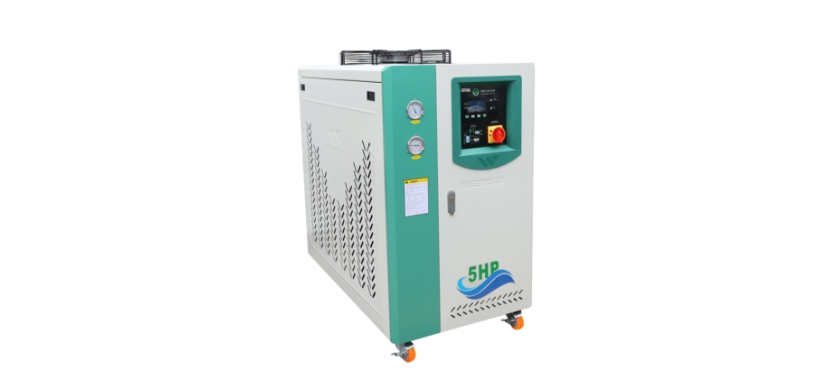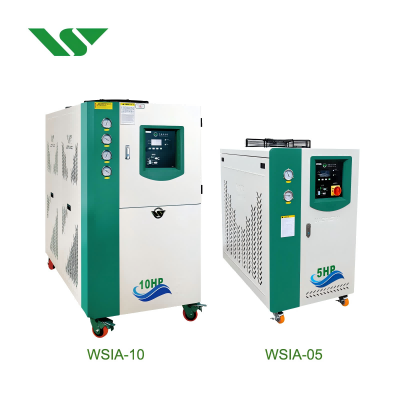Why Choose an Air-Cooled Industrial Chiller?
2024-09-23 Page view:
As industries continue to modernize globally, industrial chillers have become essential in various production processes. These chillers are categorized into two main types based on their cooling method: air-cooled industrial chillers and water-cooled industrial chillers. Among these, air-cooled chillers are gaining popularity due to their unique advantages. Here's why air-cooled industrial chillers are often preferred in industrial settings:

1. Cost-Effectiveness
One major advantage of air-cooled industrial chillers is their cost efficiency. Air-cooled chillers use air to cool the refrigerant through a condenser, relying on natural airflow rather than requiring a water source or complex piping systems. This eliminates the need for water-related infrastructure, saving businesses significant costs on piping installation, water supplies, and additional equipment.
2. Space-Saving Design
Air-cooled chillers take up considerably less space compared to water-cooled chillers. Since water-cooled systems require extra equipment, such as cooling towers and additional piping, they often need larger installation areas. Air-cooled chillers, on the other hand, are compact and can even be installed on rooftops, freeing up valuable factory floor space. This makes them ideal for businesses operating in smaller facilities or those looking to optimize their workspace.
3. Lower Maintenance Costs
Maintenance of air-cooled chillers tends to be simpler and less frequent compared to water-cooled units. With fewer components and no need for water-based cooling infrastructure, air-cooled chillers are easier to maintain. They can often run efficiently for long periods without the need for regular servicing. In contrast, water-cooled chillers require more frequent and complex maintenance, which can be time-consuming and costly due to the need for specialized consumables and labor.

4. Lower Failure Rate and Simplified Operation
Air-cooled chillers have a more straightforward design, reducing the likelihood of mechanical failure. They lack the additional piping and water-handling systems found in water-cooled chillers, which minimizes the potential for malfunctions. Should a problem arise, repairs on air-cooled chillers are usually quicker and less expensive. Additionally, their simplified design makes them easier to operate, making maintenance tasks less complicated.
5. Versatility in Installation
Unlike water-cooled chillers, which often require dedicated spaces for installation and equipment, air-cooled chillers offer more flexibility. They can be placed in a variety of locations, including rooftops or compact spaces, without the need for extensive plumbing systems or water reservoirs. This installation flexibility allows companies to optimize space and reduce associated costs.
Conclusion:
When deciding between an air-cooled and a water-cooled industrial chiller, it's essential to evaluate your industry's specific needs, environmental factors, and operational conditions. Air-cooled industrial chillers offer clear advantages in terms of cost, space efficiency, maintenance, and reliability. While each type has its strengths, for many businesses, the air-cooled option presents a practical and economical choice for cooling solutions in industrial production.



